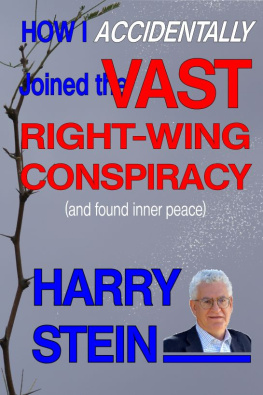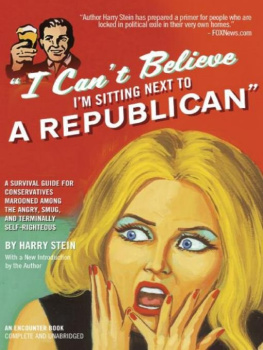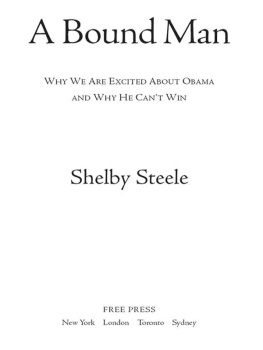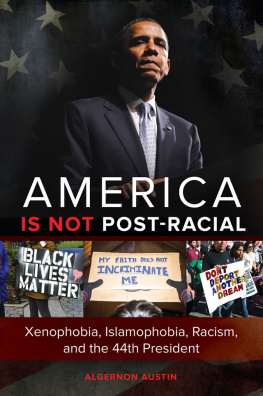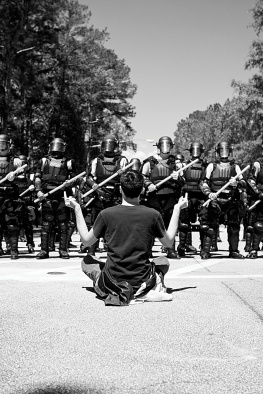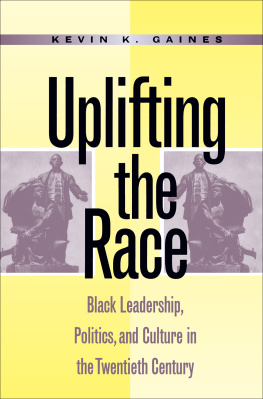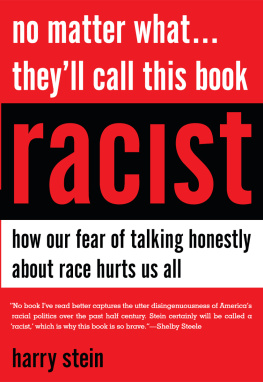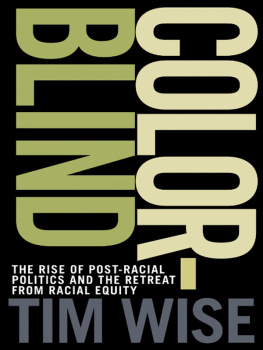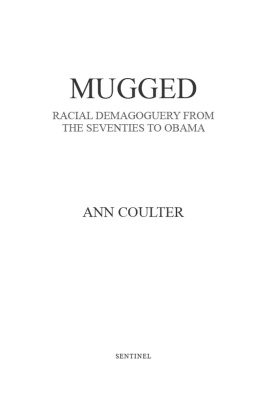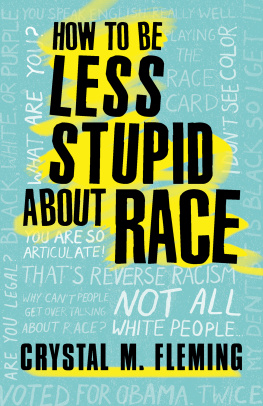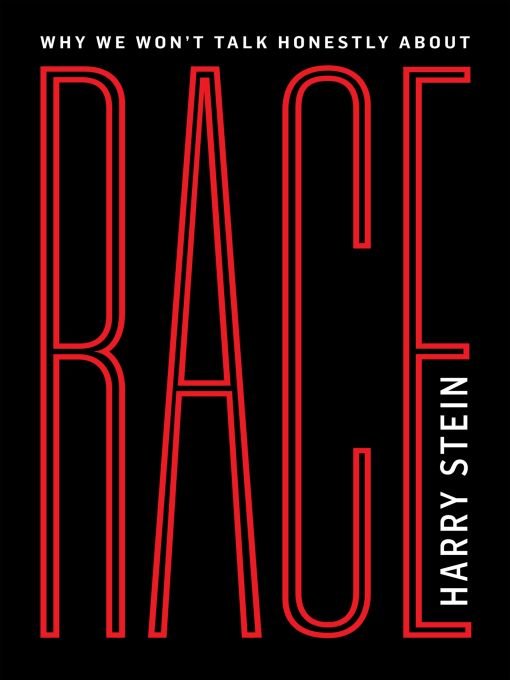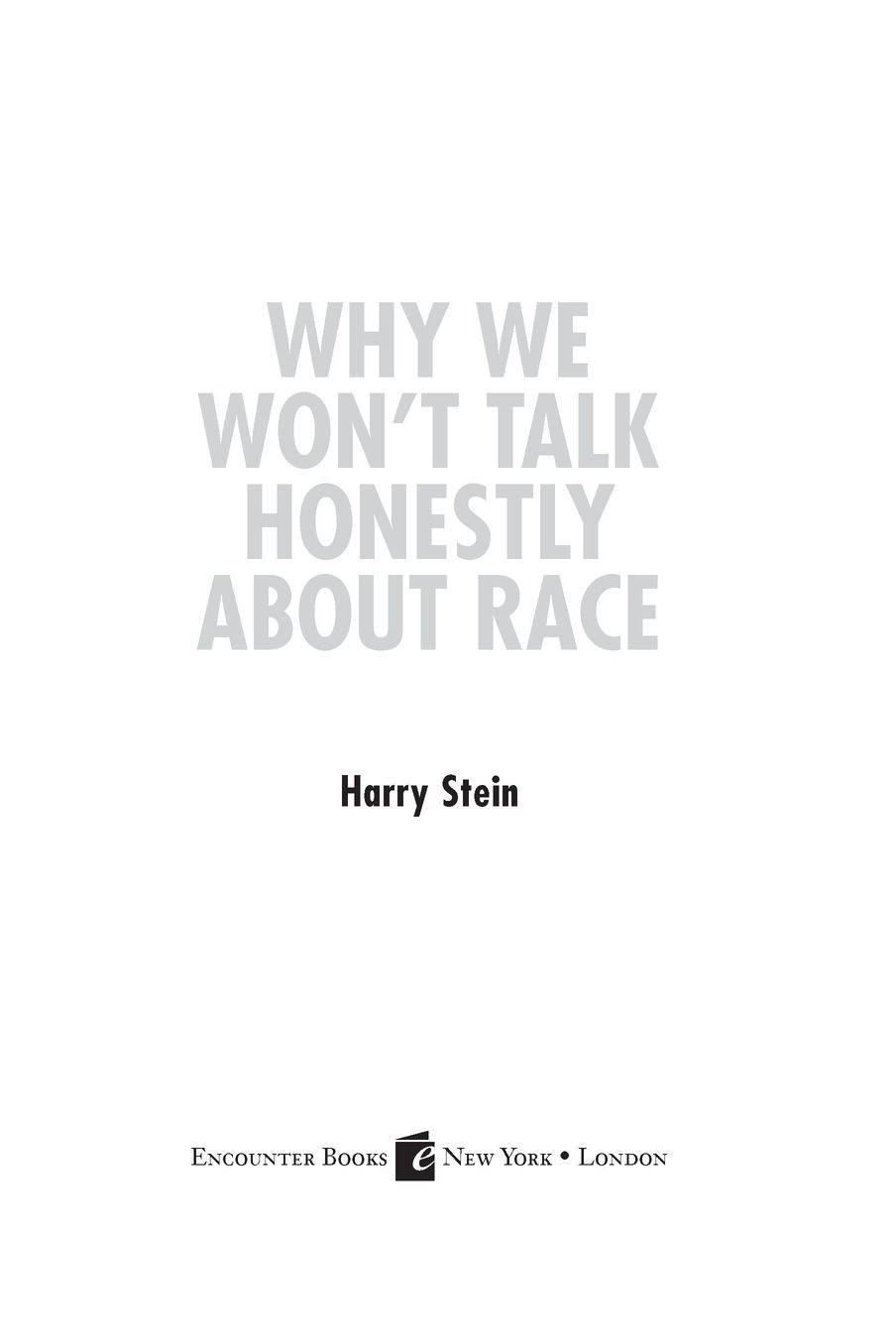Table of Contents
Praise forWhy We Wont Talk Honestly About Race(Previously titledNo Matter What... Theyll Call This Book Racist)
No book Ive read better captures the utter disingenuousness of Americas racial politics over the past half century. Stein certainly will be called a racist, which is why this book is so brave.
Shelby Steele
One of the best writers of our era, whose insightful new book, No Matter What... Theyll Call This Book Racist: How Our Fear of Talking Honestly about Race Hurts Us All is a must read.
Rush Limbaugh
I sometimes hear from parents who have been appalled to learn that the child they sent away to college to be educated has instead been indoctrinated with the creed of the left. They often ask if I can suggest something to have their offspring read over the summer, in order to counteract this indoctrination. This year the answer is a no brainer: No Matter What... Theyll Call This Book Racist.
Thomas Sowell, The American Spectator
By the time you reach the final page, you will seriously wonder why the right has not had the courage to say this before; and, whether the right will, actually, ever have the courage to say it. In that regard alone, I give kudos to Stein who will almost certainly be attacked from all sides for putting this into print.
Frank DeMartini, The Hollywood Republican
A fearless writer like Stein and his new book constitute a bold, refreshing first step toward that frank conversation that Eric Holder is so eager to have.
Mark Tapson, FrontPage Magazine
No Matter What is a fine book, and one that champions the earnest, positive message of lending a hand up rather than a handout.
Joseph Cotto, The Washington Times
To black conservatives everywhere,
shock troops in the battle
for Americas soul
PREFACE
When this book was published in hardcover in the spring of 2012, it was entitled: No Matter What... Theyll Call This Book Racist. Why is this, the paperback version, called instead Why We Wont Talk Honestly About Race?
The answer says almost as much about race and how we deal with it as anything in the pages that will follow.
The truth is, I struggled with what to call the book from the start. There are, of course, countless books out there on the subject of race, but I believed this one was saying things that were distinctive and even important, and it needed a title that reflected that, one that would give pause and perhaps even provoke. Midway through the writing, I hit upon one I thought might work. It was lifted from the famous sex book (and Woody Allen movie) of a few decades ago: Everything You Always Wanted to Know About Sex*with the asterisk reappearing at the bottom of the page*But were afraid to ask. Since one of the points of my book was that, on this most sensitive of subjects, even the most decent and fair-minded among us rarely risk saying anything that might give offense, my variation would read Everything You Honestly Think About Race*, with the second part*But are afraid to sayserving, as in the original, as a kind of unexpected and amusing subtitle. While I suspected such a title might be seen by others involved in the title search as problematic, I thought that would be mainly because the book and film were so old that many contemporary readers would miss the joke. Instead, the resistance had to do with the words themselves; everyone with whom I conferred seemed to think that most would assume all those hidden, honest thoughts referred to in the title were, in fact, viciously, irredeemably racist.
As we went along, to one degree or another this proved to be a problem with almost every prospective title anyone proposed: there were lots of people out there ready, even eager, to misconstrue it. The list of discarded possibilities grew daily: Blackmailed; Skin in the Game; Affirmative Reaction; The New Blacklist. At one point my wife even put out the question to conservative/libertarian fellow thinkers on the Web, but they, too, came up empty.
At last, I hit on the notion of finding a title that would stick it to those whose reflexive condemnation wed been so assiduously seeking to avoid: all those who deploy the racism charge as a blunt weapon to intimidate and silence. Or, as I like to think of them, the real race baiters. A slew of new ideas reflected this thought. While some were simple and direct (The Racism Smear, The Racism Lie), and others mock-affronted (Who Are You Calling Racist?,Al Sharptons NOT a Racist and We ARE?), all displayed rich contempt for those whod gotten away with playing the race card for so long.
The end result was the title that appeared on the original version of the book. All right, it was unwieldy, and, on first hearing, almost impossible to remember, but it seemed to make the essential point with a bit of humor and even panache. And in case there was ambiguity as to meaning, the subtitleHow our fear of talking honestly about race hurts us allwould surely take care of that. (At the last minute, we did tweak the subtitle, replacing the more accurate terror with the less daunting fear.)
But, of course, it was all predicated on a miscalculation. I honestlynaively, stupidly, optimisticallybelieved that as a society we were very close to consensus on the reckless use of the racism charge; that, though it continued to be used with impunity by the academic left and some in the media, as well as for shamelessly political ends by black activists and craven liberal pols, no one with any sense was buying it anymore; that, to the contrary, with a black president in the White House, it was almost universally appreciated that the American people had made vastly greater progress on the racial front, and with far greater speed, than any other in history.
Then, a couple of weeks before the book was even out, the Trayvon Martin case exploded, and a lot of us watched with horror as the tragedy was exploited for ideological ends like none in recent memory. For weeks, a situation that was, at the very least, highly ambiguous, and quite possibly a legitimate case of self-defense, was furiously condemned by liberals everywhere as evidence that America remained deeply and irredeemably racist. Young Martin, so sympathetic commentators sadly intoned, echoing the crowds in the streets furiously demanding vengeance, was murdered for nothing more than the crime of being black. It was as if the past half-century had never happened. The case, so it was endlessly repeated, was a latter-day replay of the lynching of Emmett Till. George Zimmerman, himself a minority, was identified in The New York Times as a white Hispanic, the tape of his panicked call to the local police that night inartfully edited by a major network to convey the false impression that hed targeted Martin for the color of his skin. The victim, meanwhile, was portrayed as youthful innocence incarnate, just a good kid out one evening to pick up a bag of Skittles and a can of Arizona Iced Tea, rather than as the increasingly trouble-prone teen he was, under suspension from school at the time, who had allegedly been caught with a burglary tool. The Internet outrage and mass demonstrations only began to abate with the emergence of key factsnotably, that Zimmermans version of events was largely confirmed both by his injuries and by eyewitness accounts. Not, true to form, that those whod been heedlessly waving the bloody shirt of racism ever retracted their charges. As always, their only reaction after being exposed once again as having gotten things completely wrong, resembled that of Gilda Radners Emily Litella on the old


